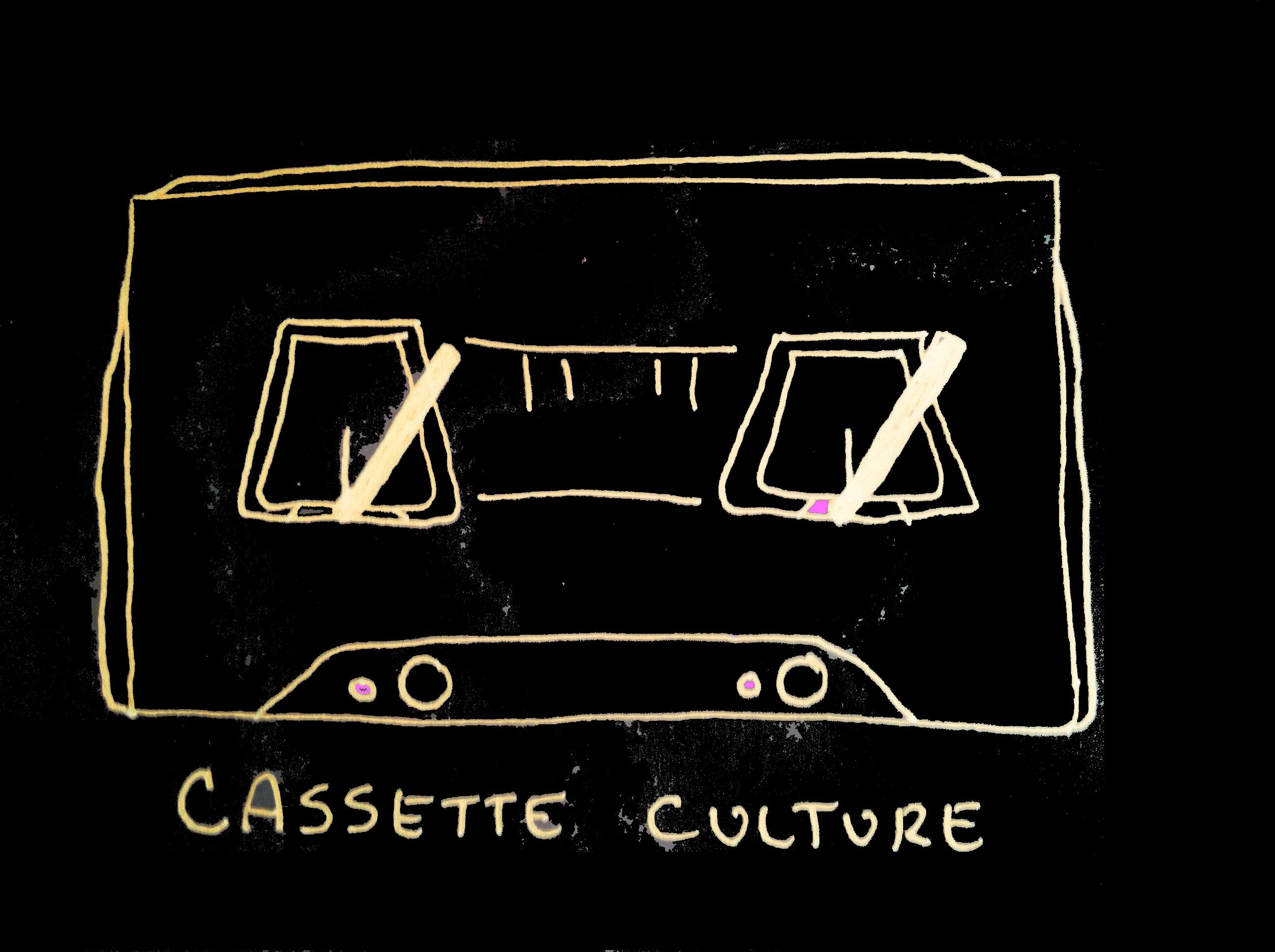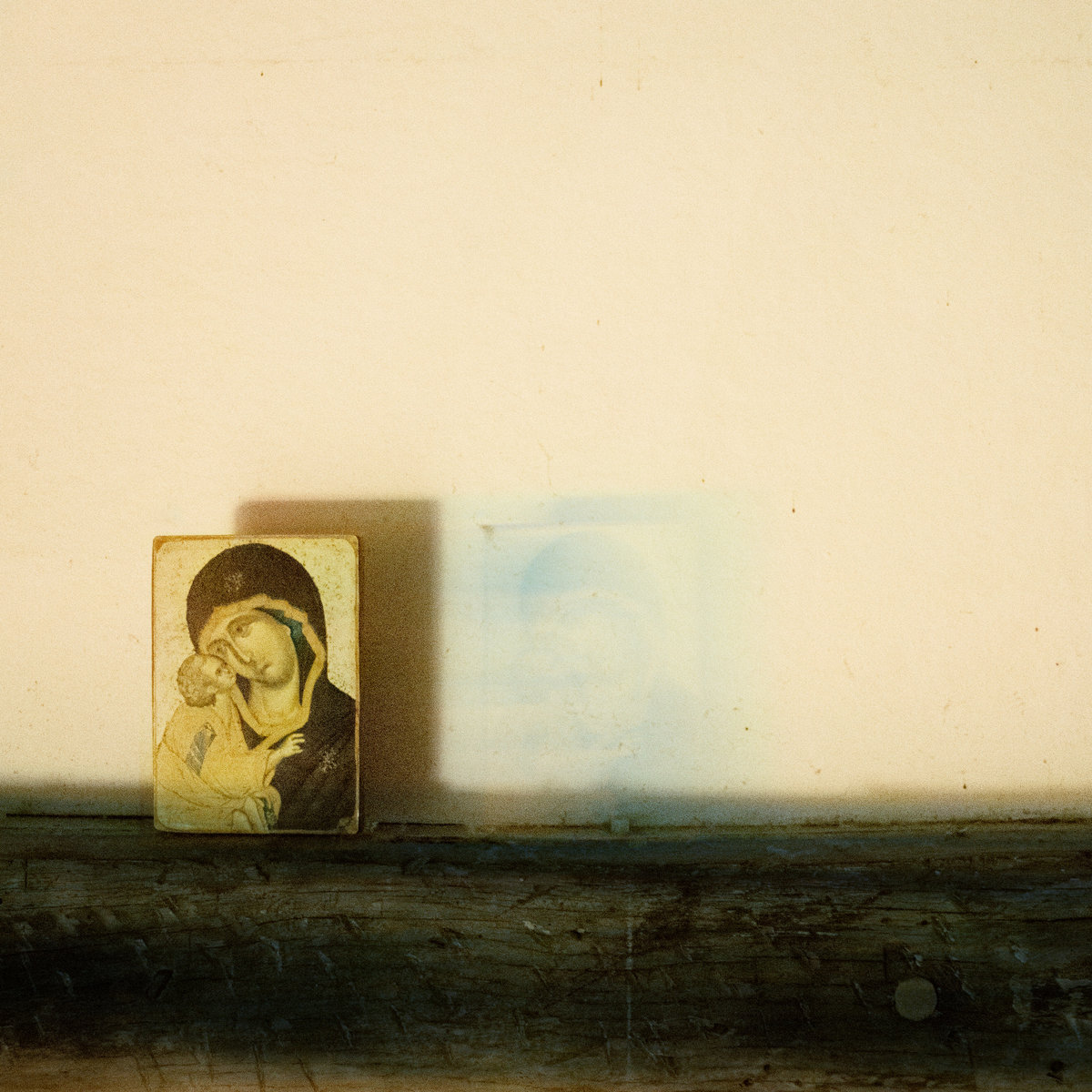Cassette Culture is a monthly column dedicated to exploring the various artists that inhabit the expansive cassette market. Drawing from bands and labels around the world, this column will attempt to highlight some of the best artists and albums from this global community.
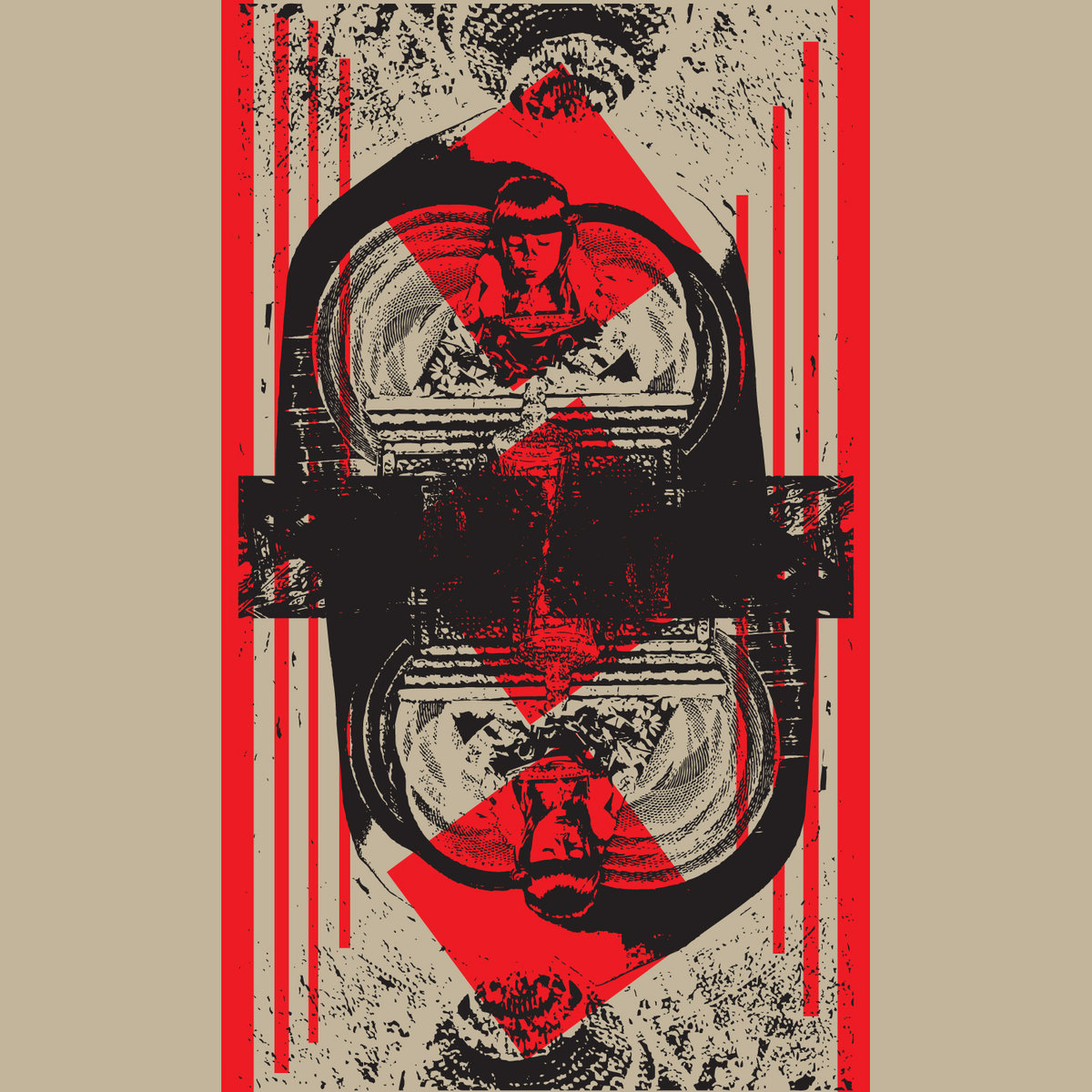 Mythical Motors / Antlered Auntlord
Mythical Motors / Antlered Auntlord
Split
(HHBTM)
Lo-fi indie rockers Mythical Motors and noisy rock eccentric Antlered Auntlord have been paired together on a new split cassette for venerable indie pop label Happy Happy Birthday to Me – and it’s a match made in DIY heaven. Mythical Motors have long tried to shake the GBV comparisons, and while they can be apt at times, it’s really time for listeners to drop that anchor and see them as inheritors rather than imitators. Their side of this cassette is full of their signature brand of jangly garage-pop, with songs rarely straying north of two minutes and melodies that speak to their affinity for 60’s psych-pop. Antlered Auntlord’s flipside is a bit rougher, more focused on distortion as aesthetic rather than byproduct. Sharing Mythical Motor’s love of brevity, Auntlord’s songs are short, ragged, and pack a sizeable wallop. The tape is awash in non-existent fidelity but reveals itself to be something of a minor wonder in how well in extrapolates their collective influences without feeling beholden to any artist or musical history. It’s a joy to hear such unfiltered inspiration coming through the speakers.
Austin outfit Computer find a way to marry the serration of noise rock with the blurry circuits of experimental music. On their new album, Changes, they summon a swirling torrent of prepared guitar tones and buzzing drones that seek to block out everything else but their own voices. It’s ambient music for steel mills or the soundtrack for late night trekking through smelting plants. There’s a striking intensity here, even when the sounds aren’t threatening to blot out the sun. Even when things seem to get out of hand, rhythmically speaking at least, the band ensures that the overall theme of the record remains coherent – that of transformation through aural means. Whatever these sounds once were doesn’t matter; it’s what they are after being altered under the guidance of the band that’s important. And what becomes apparent after listening to these generally longform pieces is that there are multiple levels on which the band operates, crafting a dissonant and oddly hypnotic miasma of sounds which has the capacity to awe and devastate in equal measure.
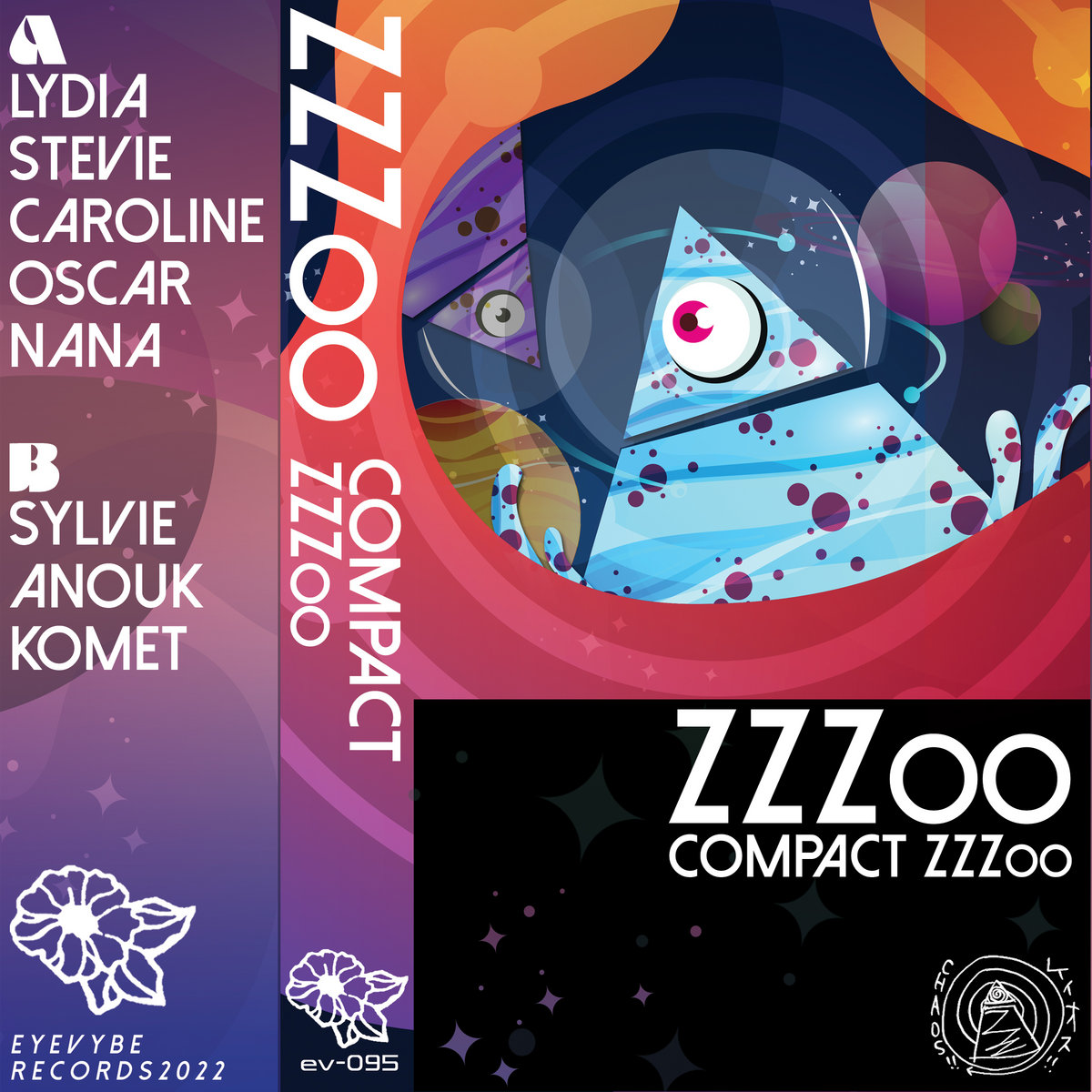 ZZZoo
ZZZoo
Compact ZZZoo
(Eye Vybe Records)
If you’ve ever looked for an entry point into the wild world of Tokyo supergroup ZZZoo (and honestly, why wouldn’t you be), then Eye Vybe Records has got you covered with the 7-track compilation, Compact ZZZoo, a cosmic rock exploration culled from various albums and digital release. Featuring members of Acid Mothers Temple, Zeni Geva, Missing Heads, Fushitsusha, and a handful of others, this collective exists to push the idea of psych rock past it known limits. Incorporating sax and iKaossilator into their music, the band dismantles our preconceptions of rock and roll, molding a sound so distinct and unforgettable that you’ll want to start diving through their entire catalog the moment you finish this tape. There’s something so wonderfully chaotic and undiluted about their passion for these sounds. These songs are vivid, raucous, and explore aspects of various avant garde aesthetics stashed way within the vast corridors of rock music.
 Salt Lick
Salt Lick
The Gift of Missing
(Den Tapes)
Salt Lick is built around the talents of a group of Seattle music scene veterans, and over the years, they have developed a dedicated fanbase due to their impressive live sets and genre-crossing albums. For their latest collection, The Gift of Missing, they’ve enlisted Emerald City imprint Den Tapes to help them spread the good word to as many people as possible. Brewing a bubbling concoction of roughhewn indie rock (and something else a bit denser in execution), the band careen through these 10 tracks with a ramshackle earnestness, eyes and arms wide open. There are elements of post-punk, shoegaze, and even acoustic balladry littered throughout the album, giving it a radiant variety of texture and tonality. From slow stomps to barnburners, these tracks inhabit a world constantly in motion, where influences are remodeled and adapted before a song has even had the time to finish playing. Each moment builds upon the next in a slowly ascending lattice of clever rhythmic integration and melodic experimentation. And the band capitalize on this forward momentum, allowing each song to play to their strengths and the collective force of their inspirations.
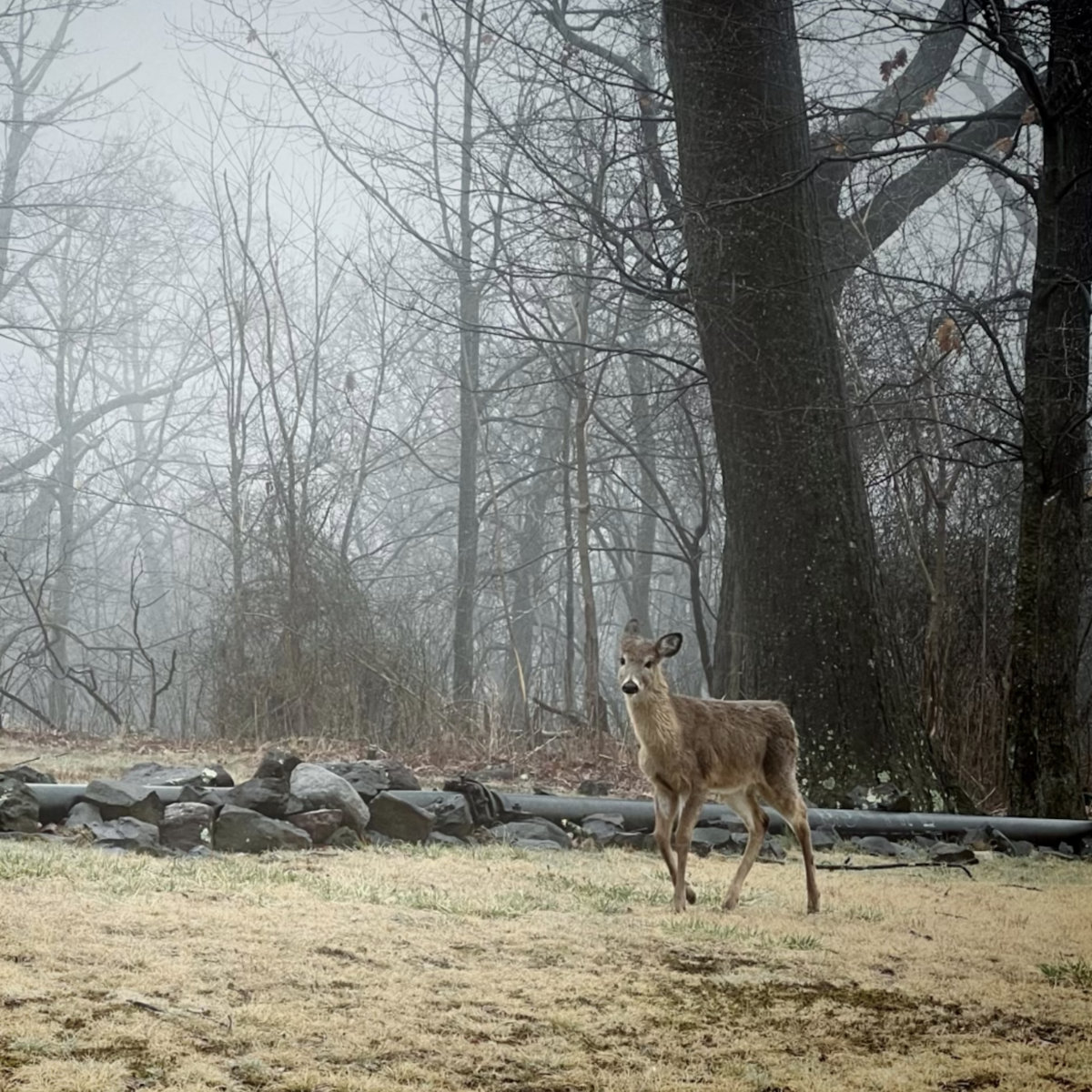 Mila Moon
Mila Moon
And I Wait
(Bud Tapes)
Recording as Mila Moon, Pittsburg musician Isabella Feraca crafts beautiful stories of love, ache, and wonder through a series of shifting lo-fi pop experiments. On her debut album, And I Wait, she pulls together a set of songs which feel more like conversations between friends than anything else, private ruminations that speak to tectonic experiences that have molded her perspective on the world around her. Her voice is both crystalline and opaque, a malleable medium through which she expresses cataclysm and revelation. Piano lines trade space with acoustic echoes and occasionally find themselves buffeted by bruised melodies that stretch out for miles. At times, there seems to be a fog encasing these tracks, a dense barrier used to hide harsh truths and pained interior thoughts, but Feraca possesses the rare talent of being able to convey cavernous emotion through any sort of distortion, be it musical or psychological. Painted with a deft hand, these aural portraits evoke late night solitude, forgotten memories, and the personal connections we make when we open our heart to the noise of the world.
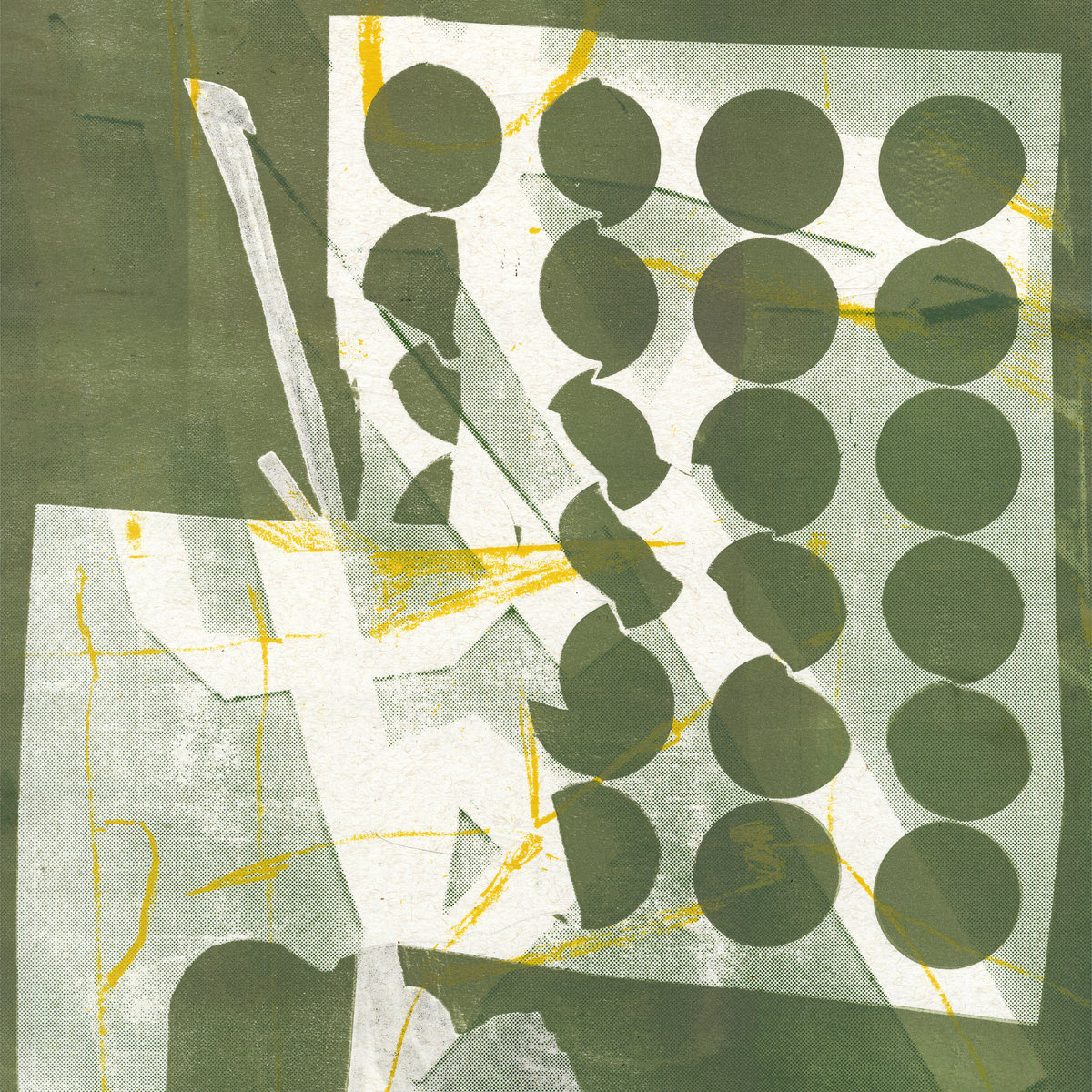 Zander Raymond
Zander Raymond
To Have Several Lives
(Sound as Language)
Sound is the medium through which Chicago synthesist Zander Raymond documents his experiences with the world, a series of sonic snapshots detailing moments that hold special meaning for him. Often working within an improvisational framework, his songs spring from modular synthesizers, found sound recordings, and open-source sound computers. His latest release, To Have Several Lives, is another tribute of sorts to memory and to our existence within the world’s grand designs, even if we aren’t sure where we fit in that global blueprint. Resting somewhere comfortably between the distant movements of ambient and a bit of participatory experimentalism, these tracks offer subtle variations, small changes that resolve into monumental epiphanies. Often no more than whisper of noise, they invite careful scrutiny, just waiting for someone to dig into the minutiae of their soundscapes. And when you do pry open their secrets, you’re privy to one of the most captivating records of the year.
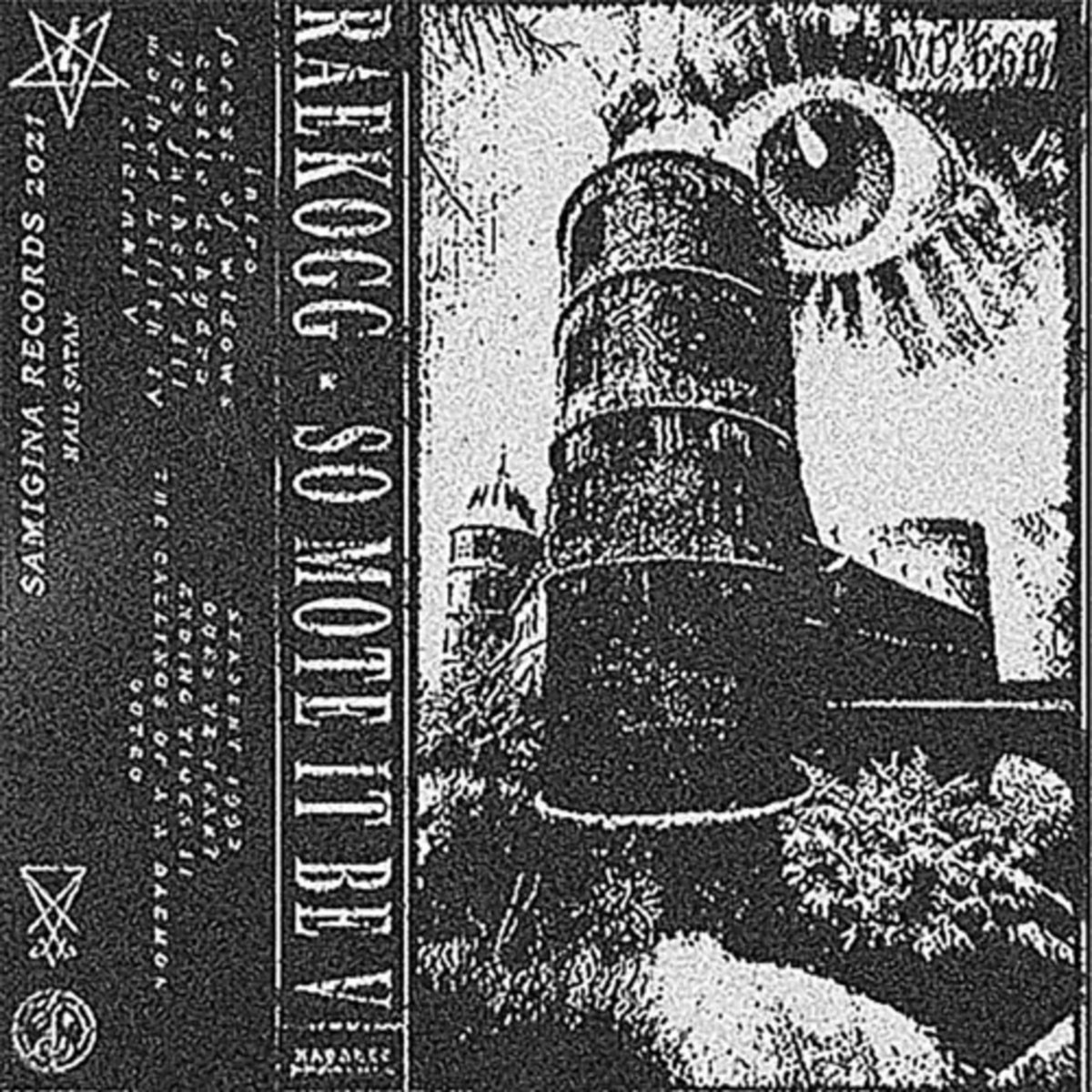 RAEKOGG
RAEKOGG
So Mote It Be V
(Tape House USA)
Dutch artist Raekogg Ors Ioiad (who records as RAEKOGG) creates what is described as ”dungeon synth”, a volatile and impressionistic manifestation of countless shadowy ambient rhythms. His latest tape, So Mote It Be V, continues his fascination with these sounds, providing him with the opportunity to revel in dense pockets of weighted synths and electronic manipulation. There is a pervading sense of foreboding wandering throughout these tracks, darkened places where light is absorbed, and sound is rendered via direct emotional currents. RAEKOGG explores this opaque world with a painterly touch, eschewing blunt musical revelations in favor of melodic hues that shift their perspective when it suits them. Despite the overwhelming grey areas in which these songs journey, there are moments of light that break up the dreary landscapes etched out in breathtaking detail. He finds mesmerizing ways in which to highlight both the freedom and surrender which comes from experiencing these moments as they carefully unravel themselves.
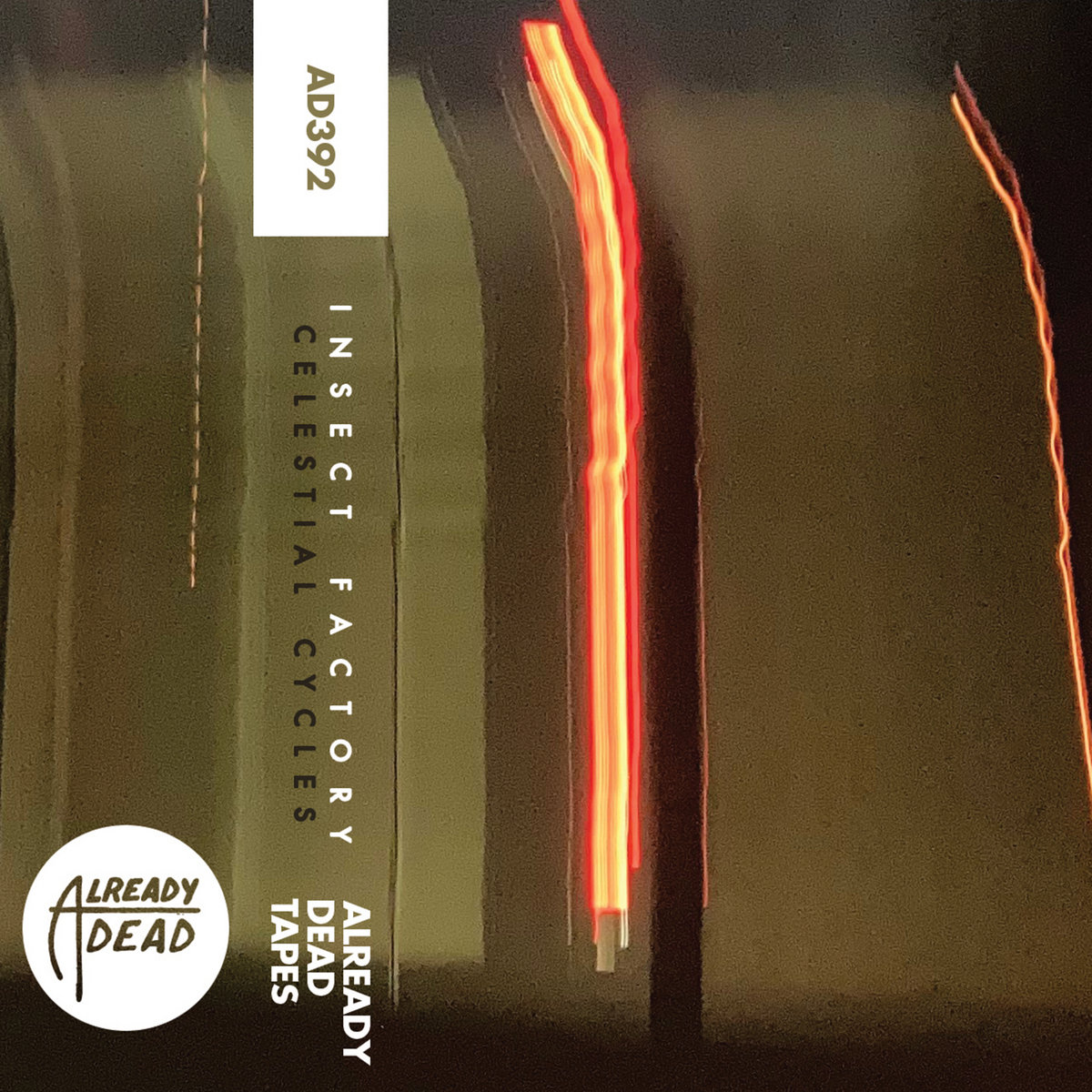 Insect Factory
Insect Factory
Celestial Cycles
(Already Dead Tapes and Records)
As the outlet through which Los Angeles musician Jeff Barsky explores extended droning passages anchored by hissing guitar movements and dense ambient rhythms, Insect Factory allows him to create vast stretches of staticky soundscapes and subsuming electronic monstrosities. On Celestial Cycles, his latest collection of these distorted sonic experiments, he uses these forms to focus on providing a place where meditation is encouraged through atmospheric disintegration. As with most albums which employ these often-jarring bouts of musical aberration, the point is to get you to hear beyond the superficial hum of each track, to see the detail and constant motion laying just under the surface. And Barsky succeeds in crafting a world of mutated melodies and drones that function as subconscious receptors. Celestial Cycles actively supports a thorough investigation of the ways in which it presents these sounds as a series of ongoing evolutions, cyclical events perfectly capable of reshaping your mental attitude and identity.
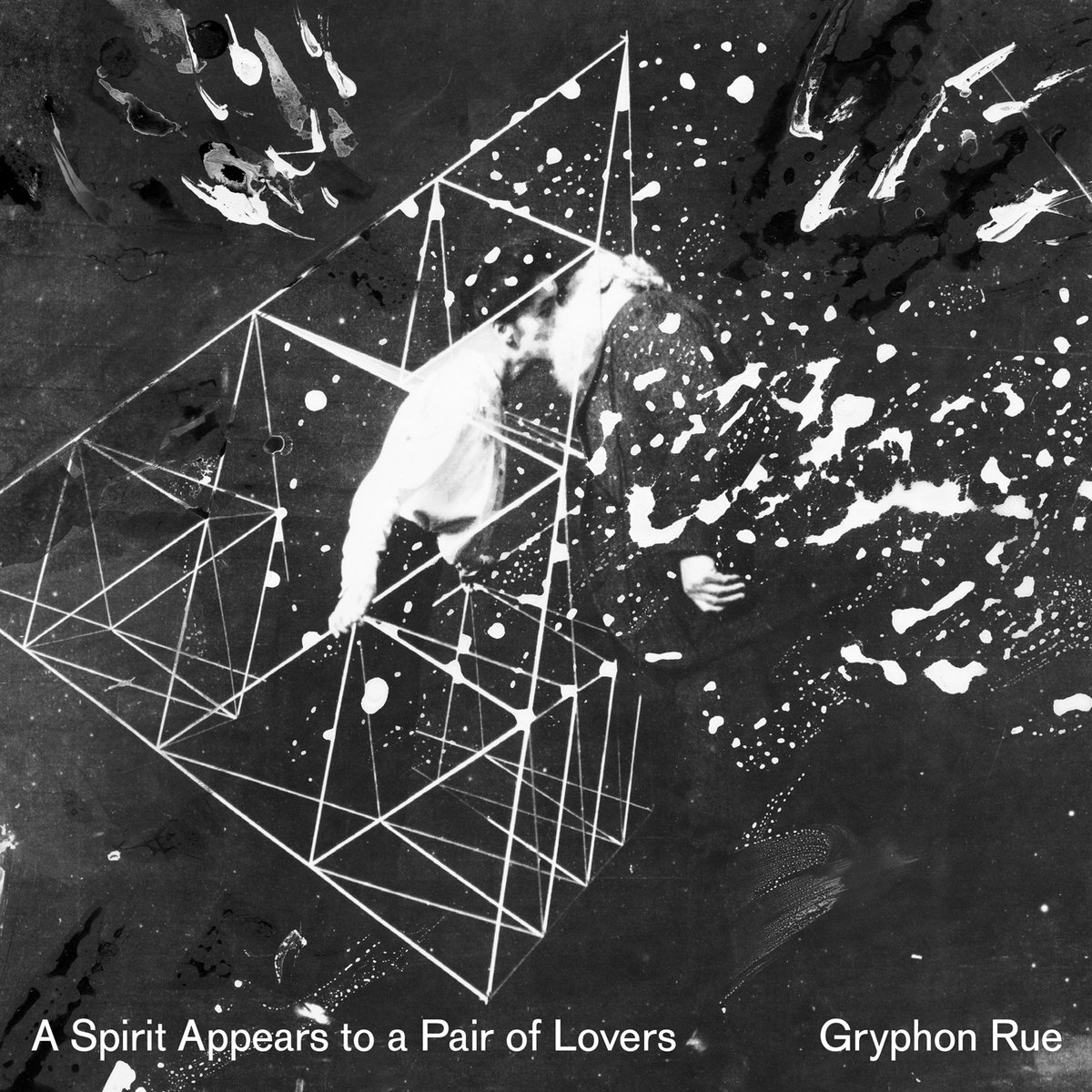 Gryphon Rue
Gryphon Rue
A Spirit Appears to a Pair of Lovers
(Not Not Fun)
For New York artist and composer Gryphon Rue, music is a fertile avenue through which he can mimic the sounds of the natural world around him. Nowhere is this more apparent than on his latest collection, A Spirit Appears to a Pair of Lovers, a 10-track journey that finds him excavating various aural reservoirs and likening the resulting album to a viewfinder, as “layers come into view, are obscured, and reemerge”. These songs have their origin back in 2020 as Rue was working out patterns for multi-tracked Farfisa organ, harmonium, and modular synth. Field recordings taken in Abiquiu, New Mexico would later be added, giving more clarity to his vision of sound as a mimetic entity. This music is transformational, and we are witness to its voyage of self-discovery and to its search for a balance between the external chaos of the world and the internal pathways laid out by Rue. Drones fade in and out, bits of angular percussion float by, and warped modal shifts are explored in detail as the music succeeds in submersing you within the ebb and flow of its complicated and oddly calming tides.
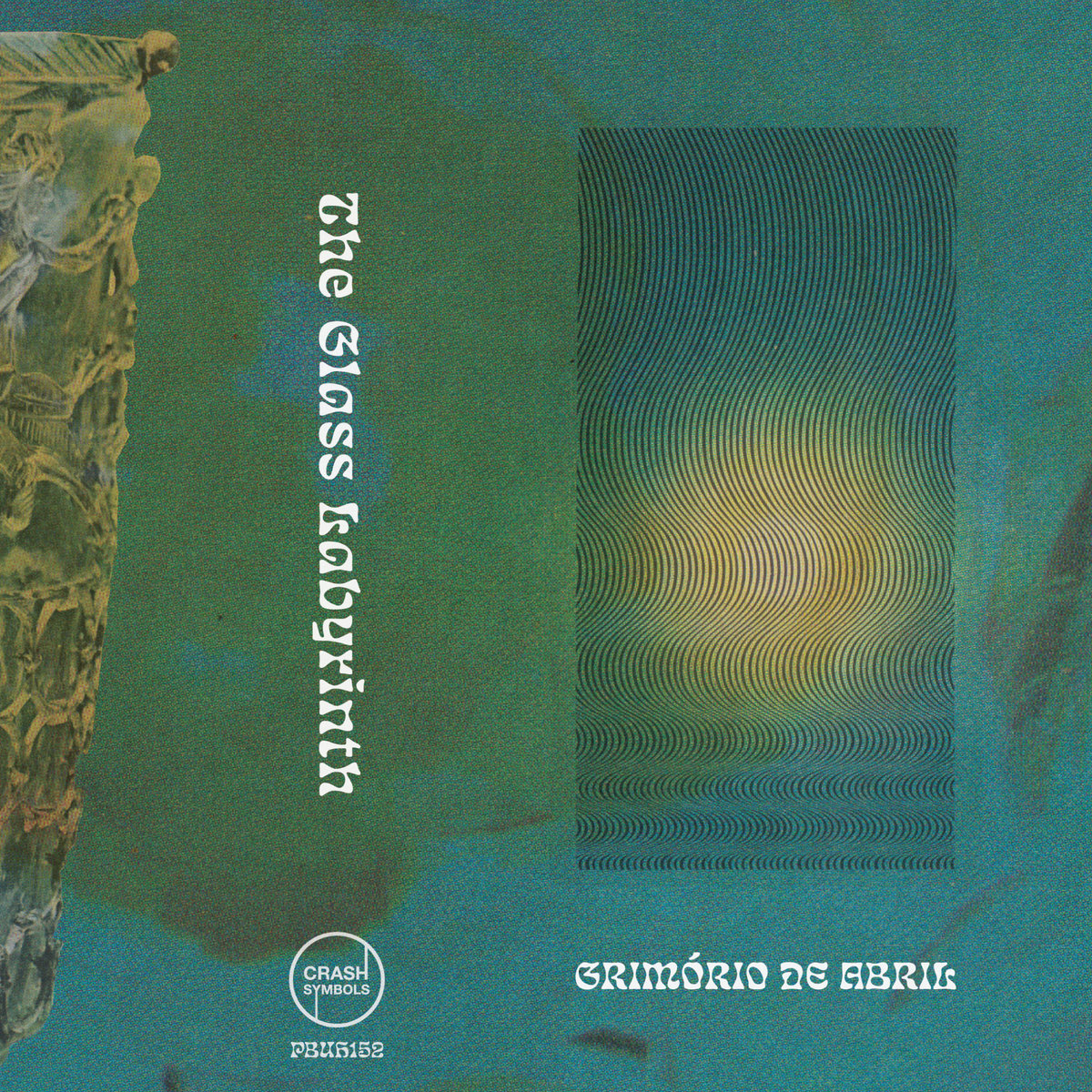 Grimório de Abril
Grimório de Abril
The Glass Labyrinth
(Crash Symbols)
During São Paulo’s COVID quarantine, musician Veridiana Sanchez tuned her gaze towards creating a sound that embodied a certain twilight feeling, of hearing music drifting in your window at 2am and imagining what you would be doing if you were there. “What moved me was the idea of doing electronic music that didn’t sound like electronic music,” she explains, “or MPB (música popular brasileira) that didn’t sound like MPB.” And so, The Glass Labyrinth was born, a collection of ambient atmospheres and vaporwave-adjacent musical realizations that is equally influenced by Eastern Bloc cinema and Brazilian poetry. These landscapes are filled with spectral synths and psychedelic subtleties, beats that appear and disappear without notice, and a sense of haunted expectation that spreads itself to the very edges of her work. True to its name, The Glass Labyrinth can easily misdirect you, offering you a way out that eventually leads you back to where you began. As such, these songs have a series of odd internal configurations, mysterious and full of foggy horizons, and it could take you weeks to get free of their influence.
Can we ever view the past without hinderance from the present? Is it even hinderance if it allows us to gain a new perspective on things we experienced? These are thoughts that London musician Jacob Ware (recording as Rapt) explores on his new indie folk treatise Wayward Faith. Written and recorded between 2020-2022, these seven songs are conduits for him to reconcile the conflicting natures of memory, nostalgia, and familial connections. He dips into the same hushed, bucolic folk aesthetic that artists like Bon Iver and Fleet Foxes have successfully mined to offer insight into personal trauma, spiritual reclusiveness, and what it takes to turn our eyes to the light after experiencing the numbing sensations of the world. Layering gossamer lines of acoustic guitar, piano, and strings across one another in an intricate lattice, he approaches these thoughts without giving in to sentimentality and banal emotional platitudes. Wayward Faith is content to revel in its weathered beliefs and is a gorgeous testament to the power of the past.
 Aonghus McEvoy
Aonghus McEvoy
Under & Cracked
(Astral Spirits)
Dublin experimentalist Aonghus McEvoy is quite capable of creating a glorious racket through the incorporation of traditional Irish music into fractured jazz-like landscapes filled with flourishes of viola, upright bass, and improvised guitar. His latest album, Under & Cracked, consists of three longform pieces that allow him to indulge his impulses through the adaptation and reclamation of various musical lineages. You can spend all your time chasing a single guitar line until it trails off into some distant ether or search the background for some obscured reflection that highlights the innate complexity of his work. His use of extended, droning guitar pieces highlights both his inherent understanding of the instrument and his ability to make improvisation appear carefully manicured. These three tracks are cinematic in their execution, shifting in their rhythmic framework, and offer ample opportunity for long-term investigation into their cavernous depths.
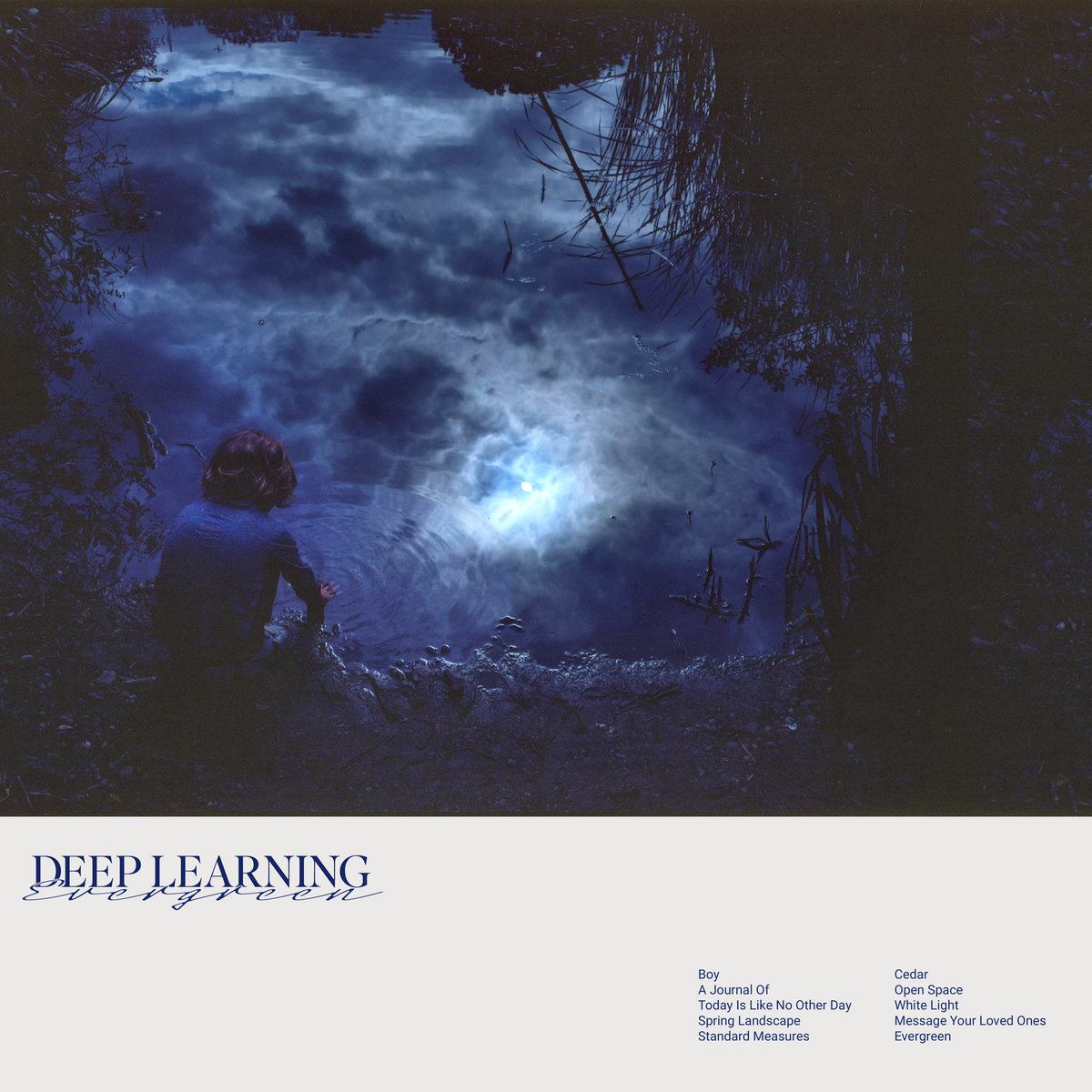 DEEP LEARNING
DEEP LEARNING
Evergreen
(Oxtail Recordings)
UK-based Australian composer Richard Pike enjoys spending time in the circuital planes between ambient, glitch, and techno – finding ways to connect and disassemble these sounds without regard for convention or influence. Inspired by walks he takes with his son in Epping Forest, Evergreen, his latest collection of mutated electronic sounds under the moniker of Deep Learning, is built around the idea of skipping noises and CD glitch tonalities. Culling together bits of voice, guitar, softsynths, and various field recordings, the album is constructed around shifting rhythms and the idea that somewhere buried deep within all these sounds is a connecting force. Using these repetitive sounds as a way to explore the droning nature of our own existence, more so over the last few COVID-affected years. As a product of his recurring musical experiments, Evergreen stands as a exploration into the internal and external forces which seem to pull us in all directions. At times hypnotic and amorphous, reveling in ambient harmonics, these songs speak of wondrous creativity born from difficult circumstances.

